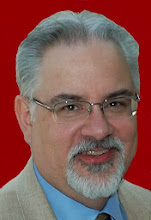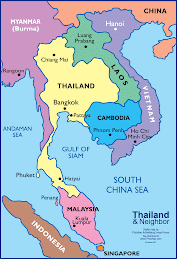The opening words of a popular song from my youth are looping through my mind this evening. “My bags are packed. I’m ready to go. I’m leaving on a jet plane . . .” At seven o’clock tomorrow morning, Peter Vogelaar and I will drive from Utica to Syracuse and board a jet plane. And, so our journey begins.
As I have prepared for this journey during the last week, I have also reflected on the disparity between my experience travelling from the U.S. to Thailand and Burma and the experience of refugees from Burma who come to this country to begin a new life.
I have packed a duffel bag and a carry-on bag for the trip. The challenge has been to heed the admonition of the recommended packing list --- DON’T OVERPACK! From a closet full of clothes and my ever-present assortment of electronic devices, I have tried to choose the few items truly necessary for the journey. Nevertheless, I know I will take more than I need. Most of my friends from Burma arrive with a couple small bags containing a few treasured items: a set or two of clothes, photos, a bible, a hymnal. They arrive with far less than they need.
Paula and I celebrated an early Valentine’s Day on Saturday in acknowledgement that we will be half-a-world apart on the fourteenth. However, we also realize that our separation will be followed by a reunion in sixteen days. The refugees who are resettled in our community typically leave behind friends and family. Often, they say, “goodbye,” to husbands and wives, brothers and sisters, fathers and mothers. They step on board a jet plane not knowing when, or if, they will be reunited.
In the last couple of weeks I have visited my physician for my annual physical and the eye doctor for a biennial eye exam. Three tubes of my blood were analyzed. My doctor assures me that I am in good health. The ophthalmologist informs me that I am more nearsighted than before and I have ordered new eyeglasses. I will travel with a couple of maintenance prescriptions and a brief medical summary should I need to seek medical attention. Refugees receive a basic medical screening, primarily for contagious disease, before they are approved for resettlement in a third country. However, many come bearing the symptoms of years of demanding physical labor, poor nutrition, and inadequate medical care. Some come missing limbs – victims of landmines. Others bear the unseen scars of brutality, rape, and trauma. Several of our newest neighbors in Utica discover that they have previously undiagnosed serious medical conditions. Some of these conditions have proved fatal.
Social location matters. I travel with privileges and rights not extended to the ethnic minorities that flee Burma for refugee camps in Thailand and eventually Utica, New York. Tomorrow, I am leaving on a jet plane. I will go where my Karen brothers and sisters cannot go. I will visit their homeland.
As I have prepared for this journey during the last week, I have also reflected on the disparity between my experience travelling from the U.S. to Thailand and Burma and the experience of refugees from Burma who come to this country to begin a new life.
I have packed a duffel bag and a carry-on bag for the trip. The challenge has been to heed the admonition of the recommended packing list --- DON’T OVERPACK! From a closet full of clothes and my ever-present assortment of electronic devices, I have tried to choose the few items truly necessary for the journey. Nevertheless, I know I will take more than I need. Most of my friends from Burma arrive with a couple small bags containing a few treasured items: a set or two of clothes, photos, a bible, a hymnal. They arrive with far less than they need.
Paula and I celebrated an early Valentine’s Day on Saturday in acknowledgement that we will be half-a-world apart on the fourteenth. However, we also realize that our separation will be followed by a reunion in sixteen days. The refugees who are resettled in our community typically leave behind friends and family. Often, they say, “goodbye,” to husbands and wives, brothers and sisters, fathers and mothers. They step on board a jet plane not knowing when, or if, they will be reunited.
In the last couple of weeks I have visited my physician for my annual physical and the eye doctor for a biennial eye exam. Three tubes of my blood were analyzed. My doctor assures me that I am in good health. The ophthalmologist informs me that I am more nearsighted than before and I have ordered new eyeglasses. I will travel with a couple of maintenance prescriptions and a brief medical summary should I need to seek medical attention. Refugees receive a basic medical screening, primarily for contagious disease, before they are approved for resettlement in a third country. However, many come bearing the symptoms of years of demanding physical labor, poor nutrition, and inadequate medical care. Some come missing limbs – victims of landmines. Others bear the unseen scars of brutality, rape, and trauma. Several of our newest neighbors in Utica discover that they have previously undiagnosed serious medical conditions. Some of these conditions have proved fatal.
Social location matters. I travel with privileges and rights not extended to the ethnic minorities that flee Burma for refugee camps in Thailand and eventually Utica, New York. Tomorrow, I am leaving on a jet plane. I will go where my Karen brothers and sisters cannot go. I will visit their homeland.

